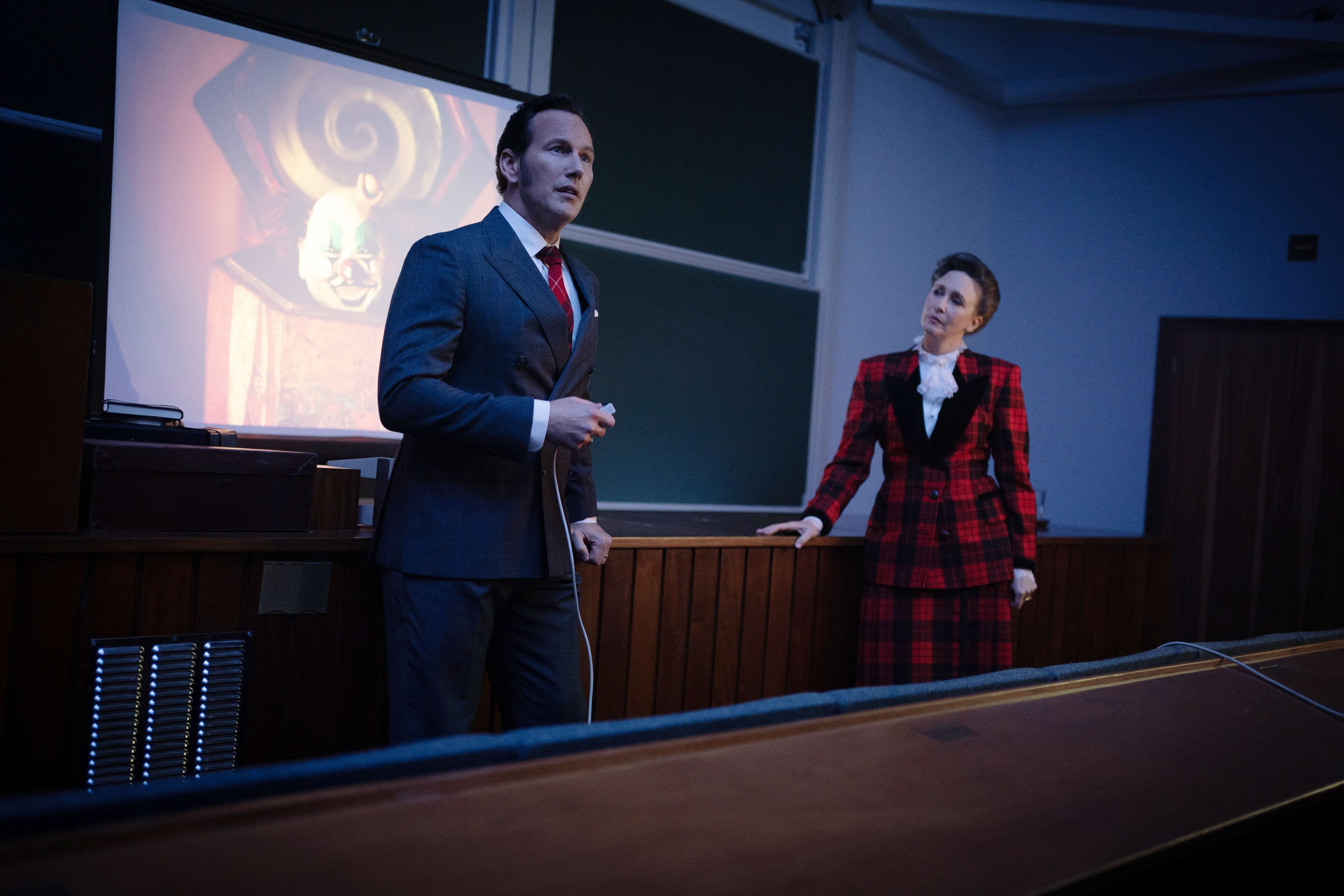
There’s a certain type of dread that creeps over you when you see that a new film is the directorial debut of not just an actor, but also the scion of another filmmaker. It’s not that talent can’t run in the family, but we’ve been burned far too many times before. Not everyone turns out to be a Sofia Coppola.
As such, it’s a relief to say that the directorial debut of Maude Apatow — the “Euphoria” star who got her start as a precocious kid in her father Judd’s movies — is utterly delightful. “Poetic License,” which premiered at the Toronto International Film Festival, has all the makings of a sleeper hit as well as a new coming-of-age classic.
Keeping it in the family is an Apatow tradition, and Maude has followed in her father’s footsteps giving her mother, Leslie Mann, a prime role that allows the “Knocked Up” star to show off her familiar comedic quirks and reach new emotional depths. But beyond that, Apatow has surrounded her mom with two of the brightest rising stars in the business, Andrew Barth Feldman and Cooper Hoffman, who are both balls of bundled charisma that bounce off each other perfectly here.
Apatow’s first smart move was to attach herself to a really good script from Raffi Donatich. Mann plays Liz, a former therapist who just moved to a quaint college town with her economics professor husband James (Method Man) and her teen daughter Dora (Nico Parker). With Dora off starting a new high school, and James busy with work, Liz finds herself adrift.
One way she tries to keep herself busy is auditing a poetry class where she meets best friends Ari (Hoffman) and Sam (Feldman). They quickly become captivated with this charming older woman who is just as confused about what to do with her life as they are. All scenes in the classroom are enhanced by the presence of the hilarious deadpan of Martha Kelly as a professor in the midst of a toxic divorce with her ex-wife where the ownership of both an air fryer and a dog are being contested.
Ari is a rich kid from New York, who is an impulsive motormouth desperate for Sam’s affection. Sam, meanwhile, is a more timid RA with a longtime girlfriend (Maisy Stella). He spent the summer working for Morgan Stanley — which Ari calls “Tracy Morgan” — and, at least at first, is hoping to work there after college, becoming rich in the way Ari naturally is.
Feldman and Hoffman immediately give us a sense of the dynamic between these two. They are both inseparable and clearly feeling the friction of a longtime friendship as they approach the end of their college years. Hoffman makes Ari all zingers and bluster, clearly masking an internal roiling in his brain, while Feldman has mastered the tightly wound nerd. (Though he has a quite a bit more swagger here than he does in his breakout of “No Hard Feelings.”)
You can see the mixture of awe and horniness on their faces when they meet Liz. She begins to entertain them in part because they are the only people who pay attention to her. There is a sort of beautiful obliviousness to Mann’s turn as Liz. She admits she was bad at her job doing marriage and couples counseling, and that’s evident in the fact that she truly doesn’t seem to read their interest in her as sexual. It’s just the fun she has been so lacking.
Mann has a tricky line to walk. You might think in this scenario that Liz is a sort of seductress, but that’s not her mode. Instead, she’s just as desperate as the boys who find her captivating. Mann fills her face with yearning: Liz just wants friendship, and these kids can provide that in their completely goofy way. She wants to make all the mistakes they are currently making so they party in Ari’s lavish apartment, drinking to excess and doing shrooms. The scene is a familiar one in these kinds of tales of regression, but Apatow imbues it with a tenderness. Intoxicated, they all imagine a future none of them will have.
“Poetic License” struggles a little bit when turning to the other members of Liz’s family. The scenes featuring Dora’s burgeoning friendships with her new classmates are lackluster and unnecessary. Liz’s spouse, meanwhile, never really gets much of a personality at all. Despite the fun casting of Method Man, the character is defined by his absence more than anything.
Apatow’s compositions sometimes have a shagginess that reveal her inexperience as a director, but she makes up for that with a mastery of the tone. “Poetic License” is moving but never falls into treacly territory, more comfortable with a salty sweetness. It’s about the morass you can find yourself in at any place in your life where you just desire, more than anything, someone who can validate your existence.
Apatow shoots her mother with obvious affection, especially in her scenes opposite Dora. Yet, it’s the dudes who steal the show. Feldman and Hoffman have that magnetic chemistry that you have gotten from some of the men in Apatow’s fathers films. It really does run in the family.
Grade: A-
“Poetic License” premiered at the 2025 Toronto International Film Festival. It is currently seeking U.S. distribution.
Want to stay up to date on IndieWire’s film reviews and critical thoughts? Subscribe here to our newly launched newsletter, In Review by David Ehrlich, in which our Chief Film Critic and Head Reviews Editor rounds up the best new reviews and streaming picks along with some exclusive musings — all only available to subscribers.



